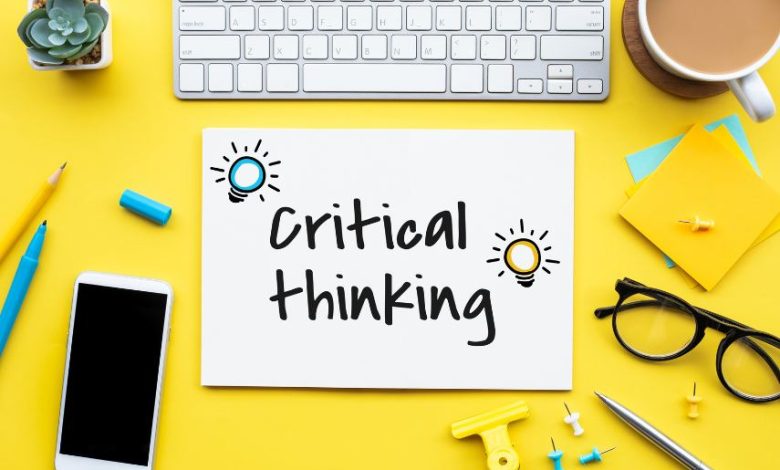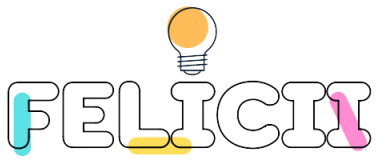Critical Thinking in College: Developing Analytical Skills
Developing Analytical Skills

Critical thinking is a cornerstone for academic success and personal growth in higher education. As you navigate college, honing your analytical skills becomes an invaluable asset. This blog explores the significance of critical thinking and offers insights into its development. Whether preparing for challenging exams or striving to excel in your online class, mastering these skills will empower you to unravel complexities and approach problems confidently.
-
Foundations of Critical Thinking
Critical thinking is the art of analyzing, evaluating, and synthesizing information to form reasoned judgments. Begin by grasping the fundamental principles of critical thinking, such as recognizing biases, distinguishing facts from opinions, and assessing the validity of sources. A strong foundation sets the stage for advanced analytical abilities. Next, apply critical thinking skills to various knowledge domains, such as science, logic, ethics, and art. Explore the methods and tools of critical thinking, such as argument analysis, fallacy detection, and creative problem-solving. Develop a habit of curiosity and inquiry that fosters lifelong learning.
-
Analyzing Complex Issues
As college students, you’ll encounter intricate subjects that demand nuanced understanding. Break down complex topics into manageable components. Delve into each part, discerning relationships and implications. Whether it’s dissecting a philosophical argument or unravelling a scientific theory, breaking it into smaller chunks simplifies comprehension. Moreover, compare and contrast different perspectives on the same issue, evaluating their strengths and weaknesses. Identify the assumptions, evidence, and conclusions of each viewpoint. Recognize the gaps, inconsistencies, and contradictions in the arguments. Develop your position based on sound reasoning and critical thinking.
-
Evidence-Based Reasoning
In an era of information, the ability to discern reliable evidence is paramount. Scrutinize sources for credibility, relevance, and accuracy. When forming an argument or opinion, ensure it’s grounded in sound evidence. Incorporate data, research findings, and expert opinions to strengthen your reasoning. Also, avoid logical fallacies and cognitive biases undermining your evidence-based rationale. Logical fallacies are errors in reasoning that invalidate an argument, such as hasty generalization, false dilemma, or ad hominem. Cognitive biases are mental shortcuts that distort our judgment, such as confirmation bias, availability heuristics, or anchoring effect.
-
Problem-Solving Proficiency
Critical thinking is at the heart of practical problem-solving. Embrace challenges as opportunities to exercise your analytical skills. Identify the core issue, explore potential solutions, and assess their feasibility. In your online class or beyond, this approach will equip you to tackle real-world problems systematically. Furthermore, develop your creativity and innovation skills to generate novel and practical solutions. Think outside the box and challenge conventional wisdom. Apply design thinking principles like empathy, ideation, prototyping, and testing. Use feedback and reflection to improve your problem-solving proficiency.
-
Effective Decision Making
Critical thinking is at the heart of practical problem-solving. Embrace challenges as opportunities to exercise your analytical skills. Identify the core issue, explore potential solutions, and assess their feasibility. In your online class or beyond, this approach will equip you to tackle real-world problems systematically. Furthermore, develop your creativity and innovation skills to generate novel and practical solutions. Think outside the box and challenge conventional wisdom. Apply design thinking principles like empathy, ideation, prototyping, and testing. Use feedback and reflection to improve your problem-solving proficiency. If you need help with your online class, search for “take my online class for me” on Search Engine and find reliable and professional services to assist you with your academic goals.
-
Lifelong Learning Mindset
Critical thinking isn’t confined to academic endeavours; it’s a lifelong pursuit. Continuously seek knowledge, question assumptions, and refine your analytical prowess. Engage in discussions, read diverse perspectives, and remain open to evolving viewpoints. This mindset enriches your learning experience and prepares you for a dynamic future. Furthermore, embrace challenges and opportunities to learn new skills and concepts. Seek feedback and learn from your mistakes. Pursue your passions and interests and share them with others. Create an attitude of amazement and curiosity that compels you to go out and learn about the world. Adopting a lifelong learning mindset enhances your personal and professional growth.
Conclusion
Mastering critical thinking is akin to developing a mental toolkit that empowers you to navigate the complexities of college and beyond. From laying the foundations of discernment to making informed decisions, these skills amplify your academic journey and extend to all facets of life. As you strive to excel in your online class or any educational pursuit, remember that critical thinking isn’t just a means to an end; it’s a lifelong skill that shapes your perspective, enriches your experiences, and propels you toward success. Embrace it once, and its impact will be felt throughout your educational odyssey and future endeavours.









